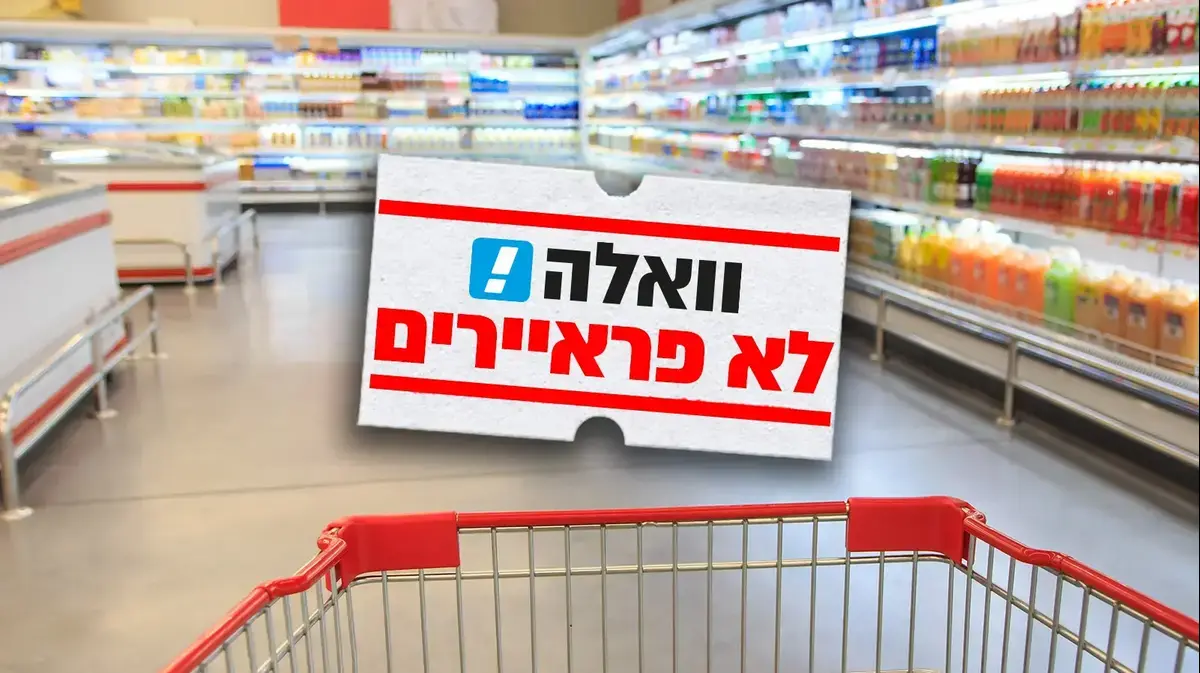The cost of living: this is how the Ministry of Health failed the import reform
Parts of the initiative to reduce barriers to imports, which was intended to ease the cost of living in Israel, got stuck in the committee mainly because of the opposition of representatives of the Ministry of Health.
With all the understanding of their intention to protect public health, the list of some of their products opposed, raises question marks
Liat Ron
09/29/2022
Thursday, September 29, 2022, 1:24 p.m. Updated: 1:36 p.m.
Share on Facebook
Share on WhatsApp
Share on Twitter
Share by email
Share in general
Comments
Comments
The reform, which was designed to reduce the cost of living, would have been more comprehensive had it not been for the puzzling order of priorities of the Ministry of Health (Photo: ShutterStock, Doron Sheiner)
Let's start with a riddle: what is more dangerous to health?
A.
Cans.
B.
honey c.
Olive oil.
d.
Sweets.
It is likely that most of you would mark the fourth answer without getting confused, because every doctor will say that anything that has sugar, fat, and empty calories, may be more harmful than, say, olive oil which is considered very healthy.
Therefore, it is surprising to discover that the representatives of the Ministry of Health in the committee for examining the food standards, think the opposite.
For them, tuna cans, canned pineapple and olive oil, endanger public health several times more than sweets, which do not need standardization at all - therefore the severe Israeli standardization imposed on them should not be abolished, and their importation into Israel should be allowed according to the European standardization.
By the way, in this strange list you can also find honey and coffee.
In an attempt to understand the logic behind this insistence, we talked to several officials who sat on the committee and they too were left without satisfactory answers.
It turned out that during the discussions conducted in recent months by the Chairman of the Regulatory Authority, Yoel Briss, in the Food Standards Review Committee, which recommended the cancellation of Israeli standardization for a number of imported food products, the Ministry of Health insisted on postponing the cancellation of the standards for honey, olive oil, cans and coffee
. The same factors, had it not been for the Ministry of Health raising difficulties, and demanding that the repeal of the standards on the list of food products that was mentioned before be postponed until June 2023, the food import reform, announced yesterday by Prime Minister Yair Lapid, and heralding the entry into force of the decisive phase this coming January, could have been perfected here And now, with the understandable exception of ground meat and raw milk, the health risk involved in importing them into Israel is understood.
Food products yes, deodorant no.
An example of the Ministry of Health's order of priorities (Photo: ShutterStock)
As of this moment, 61 food standards unique to Israel have been canceled immediately and European standards will be adopted in their place, the cancellation of 36 standards has been postponed, including 13 of canned foods, and 30 standards remain off the list altogether.
This means the postponement of the competition in the rejected and excluded food products and the reduction of their price.
Miraculously, Diplomat's tonnage is included in the parallel import deferral, which will allow it to continue to dominate the market in the coming year.
Abolishing the standards should reduce bureaucracy, introduce new competitors to the market, lower the cost of living, and facilitate the import and local production of various food products including: chocolate, canned vegetables of all kinds, pasta, rice, crackers, dried fruits, jams, a variety of frozen vegetable products, spices , dry soups, ketchup, mustard, mayonnaise, tea, dairy products and ice cream and more.
This is the third step in the entire reform, with the first going into effect in June and including a long list of products that are under the responsibility of the Ministry of Economy, from bicycles to diapers, the second, electrical appliances, which went into effect in September.
Together with the cancellation of the standards for the food products, it will be possible to import a large part of the spices through parallel imports, without bureaucratic barriers, around the cancellation of which there were much more difficult battles than those about the food.
The Ministry of Health stood on the back foot to not approve the parallel import of ointments that are in contact with the mouth, such as toothpastes and mouthwash, because they endanger public health and can cause serious damage.
By the way, in their view, deodorant also puts the user at risk of terrible burns and hair shampoo can also cause baldness...
Why do toothpastes and olive oil scare the Ministry of Health so much?
They claim that the market needs to be adjusted to European standards, and if the standards are canceled and parallel imports are approved without the required preparation, a vacuum of non-standards will be created that could endanger the public and therefore time is needed for the process.
In any case, if by June 2023 the Ministry of Health - which has so far dragged its feet and is already requesting a postponement of the implementation of the parallel import of the perfumes - does not regulate the matters of standardization, the authority will pass to the Ministry of Economy, which will be able to create an alternative route for imports, as it did with the import of tampons and diapers.
will it happen
The importers know very well that "every delay is good" and therefore will ask for as many delays as possible.
The regulators must make sure that the pressure they will apply will not compromise the welcome move.
good to know (in advance)
Beat the pain: B-Cure laser in an unprecedented experience sale
Served on behalf of B Cure Laser
Of money
news
Tags
Ministry of Health
food
reform
Ministry of Economy
Ministry of Finance












